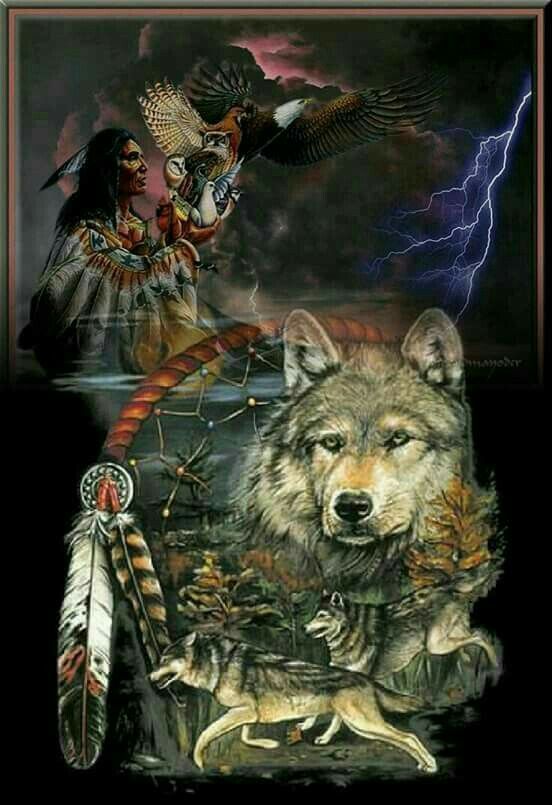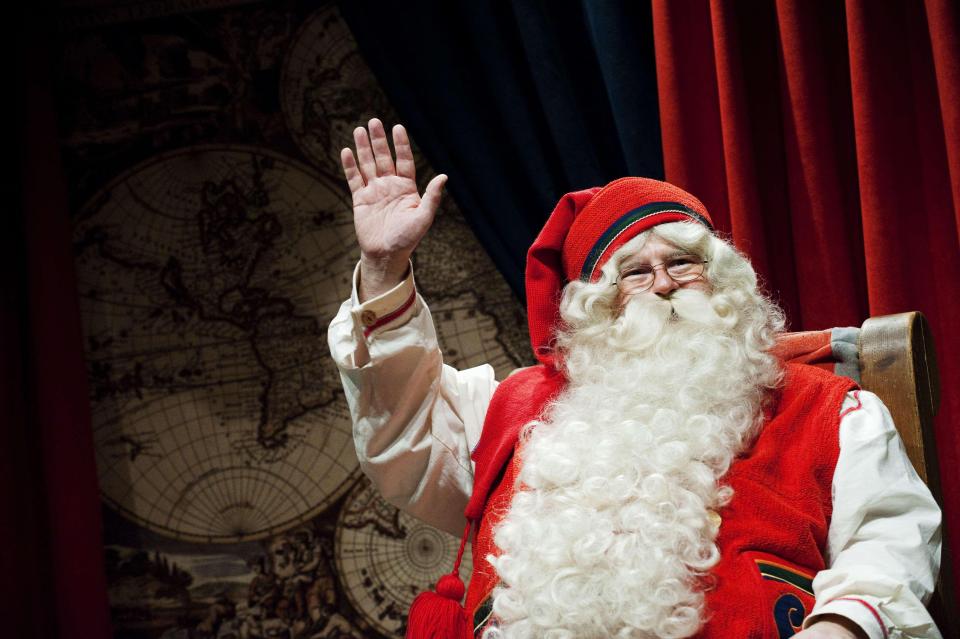Native american story of two wolves
The Cherokee Two Wolves Story and the Power of Mindset
No matter who you are or where you come from, you’ve probably faced several obstacles in life. Encountering difficulties is a natural part of life that unites all of us here on Earth. Whether you’re in the middle of a big life challenge right now or are preparing for a future roadblock, there’s nothing wrong with needing a little bit of inspiration to get you through the tough times.
There’s no better way to get the motivation you need than to hear an uplifting story. The two wolves story, which is a parable in the Native American tradition that has been passed down from generation to generation, will empower you to change your mindset and approach life with a more positive outlook. Here’s the real story of the two wolves and how you can use it to start living life more intentionally.
What Is the Two Wolves Story?The story of the two wolves is an ancient tale that has been a part of the Native American tradition for generations. Although the exact two wolves story origin is unknown, historians typically attribute the tale to the Cherokee or the Lenape people. The story of the two wolves also has several alternative titles, including “The Wolves Within,” “Which One Do You Feed?”, “Grandfather Tells” and “The Tale of Two Wolves.”
The story features two characters: a grandfather and his grandson. The grandfather explains to his grandson that there are two wolves fighting within him, which is an image that serves as a metaphor for the man’s inner sense of conflict. The conversation between the two men goes like this:
“I have a fight going on in me,” the old man said. “It’s taking place between two wolves. One is evil – he is anger, envy, sorrow, regret, greed, arrogance, self-pity, guilt, resentment, inferiority, lies, false pride, superiority, and ego.”
The grandfather looked at the grandson and went on. “The other embodies positive emotions. He is joy, peace, love, hope, serenity, humility, kindness, benevolence, empathy, generosity, truth, compassion, and faith.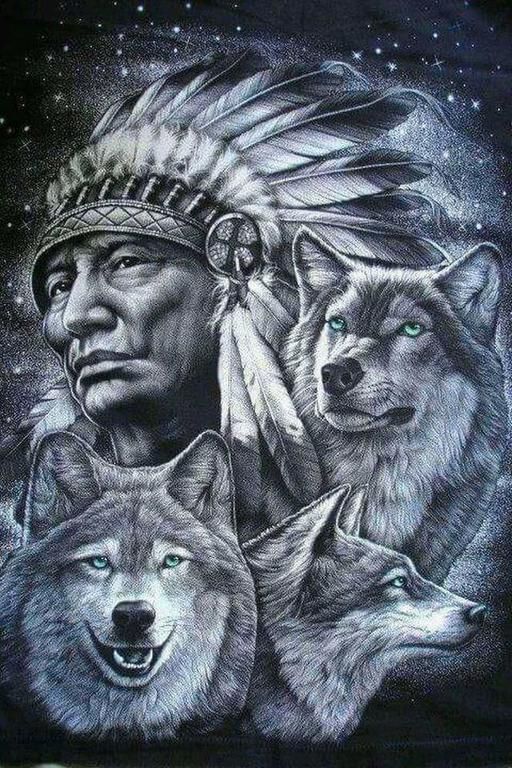 Both wolves are fighting to the death. The same fight is going on inside you and every other person, too.”
Both wolves are fighting to the death. The same fight is going on inside you and every other person, too.”
The grandson took a moment to reflect on this. At last, he looked up at his grandfather and asked, “Which wolf will win?”
The old Cherokee gave a simple reply. “The one you feed.”
This parable serves as a powerful reminder of the fight that every human being must face. Regardless of the type of person you are or what kind of life you lead, you will find yourself battling two conflicting emotions at some point in your life. Whether the fight is between anger and peace or resentment and compassion, it’s important to recognize the conflicting feelings inside you and to feed the values and choices that matter most.
What Does the Cherokee Story of Two Wolves Say About Happiness?The two wolves story is packed with important life lessons that you can use to shape your own mindset. The important thing is to be open to them as you work on improving your life.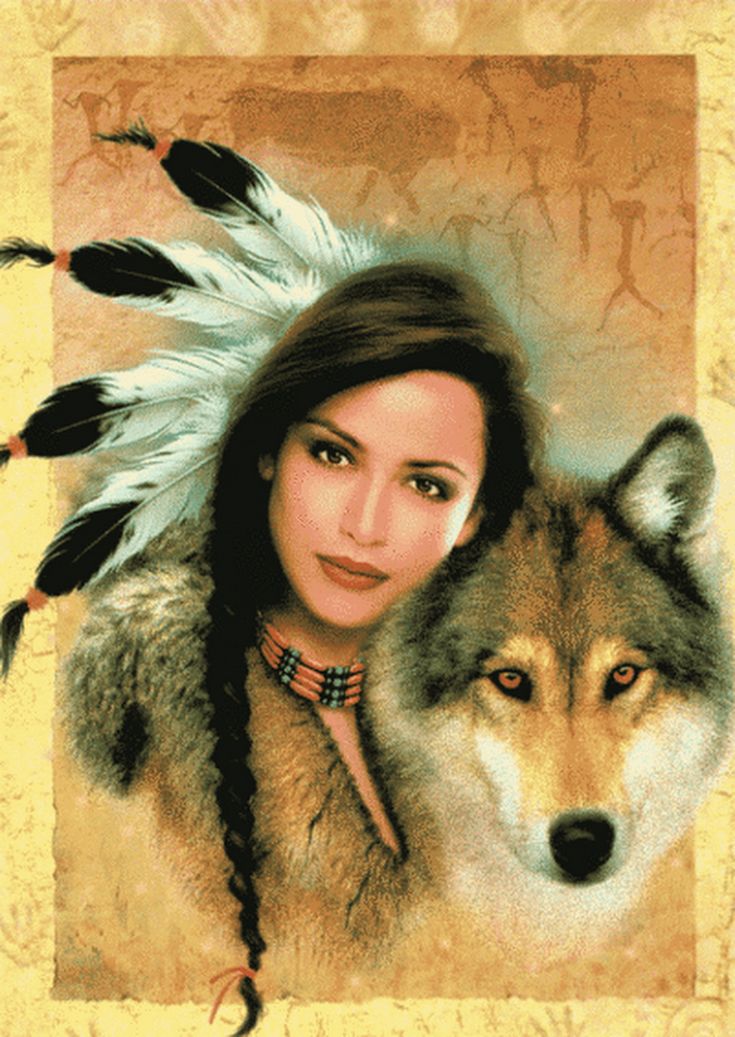
One of the most crucial lessons hidden in the Native American story of two wolves is the the fact that you have more power over your happiness than you think you do. In this world, it’s easy to get beaten down by your circumstances, especially when they’re not what you expected. Whether you’re facing a personal challenge or a certain conflict in the workplace, it can sometimes be too easy to let that setback dictate your thoughts and emotions.
However, giving in to the way your problems make you feel means that you’re allowing these issues to take over your life. In reality, it isn’t the events themselves that have power over you. As the grandfather explained to his young grandson, the way you choose to react to these events is what really matters. You can choose to surrender to your envy, sorrow and regret, or you can choose to feed your inner peace, joy and hope.
The more you focus on nourishing the positive emotions inside you, the less room there will be for all the negative feelings.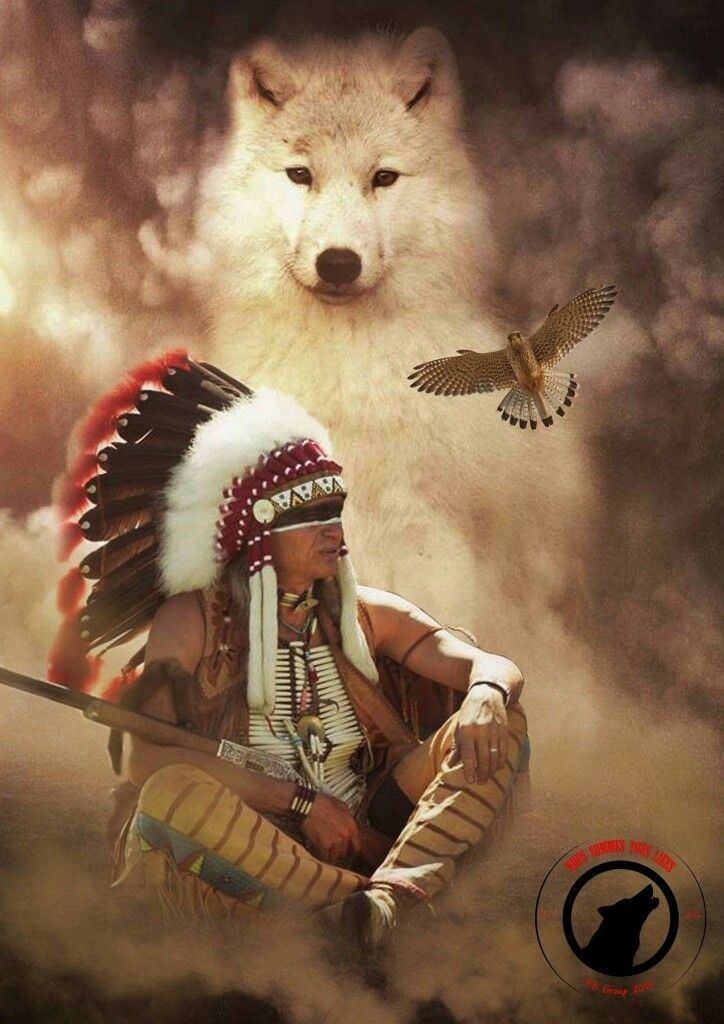 This simple truth perfectly embodies the lesson that the older man tries to teach his grandson in the story.
This simple truth perfectly embodies the lesson that the older man tries to teach his grandson in the story.
Similarly, mindset is another key theme in the story of the two wolves. The “wolf” you decide to feed in your own life will ultimately determine the way you live it every single day.
Your mind has a profoundly powerful effect on your entire outlook on life. If you choose to focus solely on the negative thoughts in your mind, you will perceive the world around you as an equally negative place. Over time, this can cause you to become depressed, anxious or cynical as you go about your daily life.
Alternatively, being intentional about feeding the positive thoughts in your mind will have the completely opposite effect. By filtering out your unpleasant thoughts and emotions, you’ll only have space in your mind for the thoughts that lift you up and help you have faith in the world around you.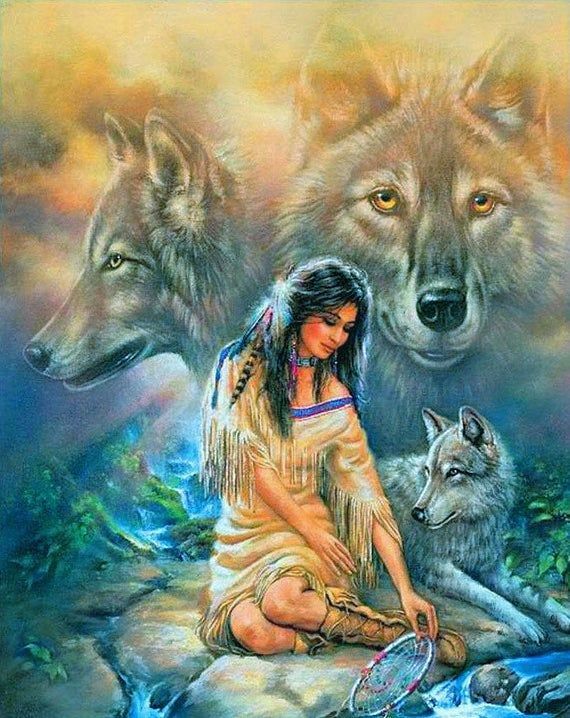 It’s no coincidence that focusing on pleasant thoughts will cause you to see your own life and the world you live in as a much better place.
It’s no coincidence that focusing on pleasant thoughts will cause you to see your own life and the world you live in as a much better place.
It’s clear which path is the more fruitful one to take. At the end of the day, maintaining a positive mindset is about much more than just choosing which thoughts to have. When you decide how you want to perceive the world, you’ll have the power to change the way it appears to you. This will give you the freedom to live life according to your personal goals, desires and dreams, which will also empower you to encourage others to do the same.
What Does the Cherokee Story of Two Wolves Say About Changing the World?At first glance, the two wolves story may seem like it only applies to your individual thoughts and feelings. However, there is a much deeper meaning behind this ancient parable.
When you make the decision to switch to a more positive way of life, your choices will naturally have an effect on everyone around you.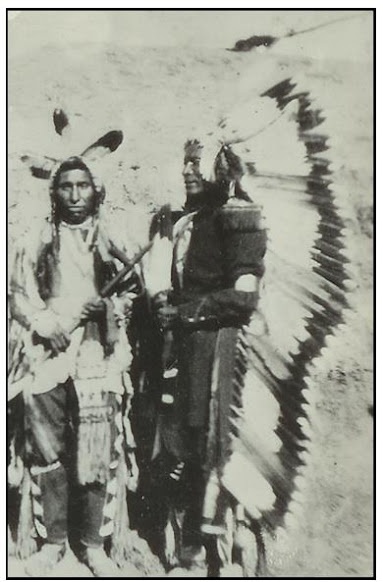 No man or woman is an island. Those who observe the way you approach life with a sunny outlook and a determination to avoid negativity won’t be able to resist being drawn to your positive energy. They’ll want to know what inspires you to live the way you do, and they’ll be eager to try out this lifestyle for themselves.
No man or woman is an island. Those who observe the way you approach life with a sunny outlook and a determination to avoid negativity won’t be able to resist being drawn to your positive energy. They’ll want to know what inspires you to live the way you do, and they’ll be eager to try out this lifestyle for themselves.
This effect is more meaningful than you might think. On a small scale, you might have a positive influence on those in your immediate vicinity, such as your friends, neighbors and family members. However, it’s the larger scale that makes the real difference. Over time, more and more people will begin to catch onto your transformative mindset, and they’ll be more inclined to see how it works for them.
Your choice to become a more positive person might not make any waves at first, but it will in the long run. As time continues to go by, you’ll have found that you helped change the world, one thought at a time.
What Does the Cherokee Story of Two Wolves Say About the Human Experience?One of the most powerful lessons of the two wolves story is that you aren’t alone.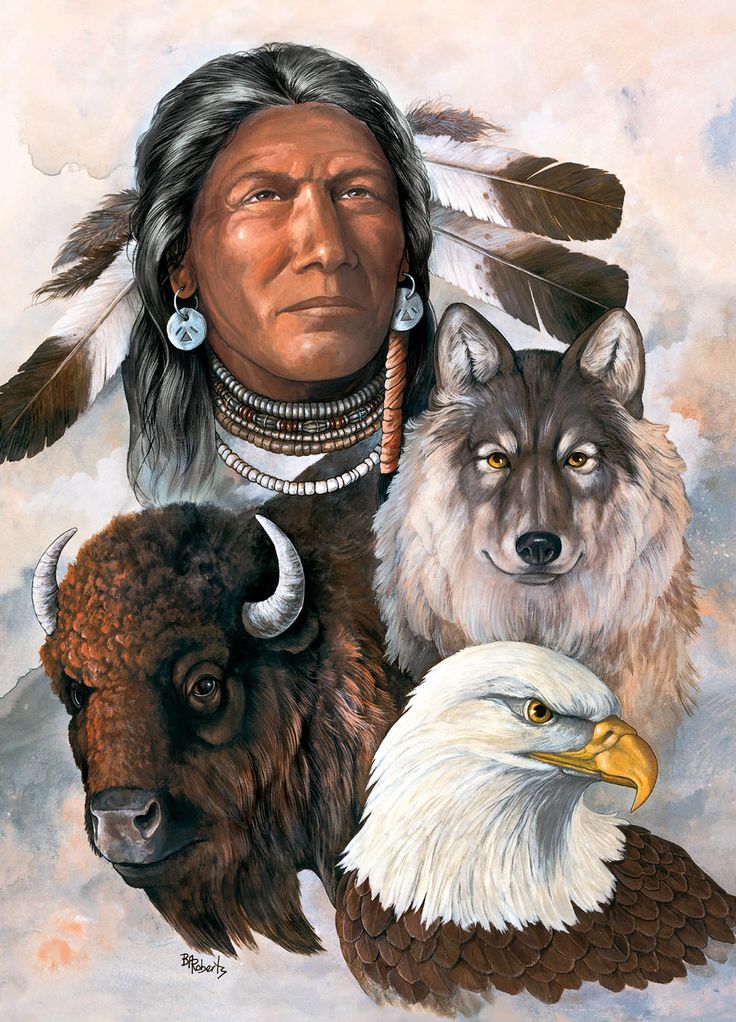 If there’s one thing that unites every human being on Earth, it’s that everyone experiences their share of pain and suffering in life. It might not seem like your upbeat neighbor or optimistic friend is going through a rough patch, but the truth is that everyone struggles in some way.
If there’s one thing that unites every human being on Earth, it’s that everyone experiences their share of pain and suffering in life. It might not seem like your upbeat neighbor or optimistic friend is going through a rough patch, but the truth is that everyone struggles in some way.
When you’re alone and working hard to cope with your pain, it’s easy to feel like you’re the only one who feels that way. However, there’s a good reason why the Native American story of two wolves has resonated with so many people. Every single person has the same “fight” going on inside them, whether it’s between anger and peace or arrogance and humility.
Knowing that you’re not alone can help you face life’s difficulties with a sense of confidence and peace of mind.
Improving Your Own Life With Help from the Two Wolves StoryThe real story of the two wolves has left an indelible mark on society. As people struggle to conquer their negative thoughts and feelings and replace them with joyful ones, the two wolves story serves as a source of inspiration and hope.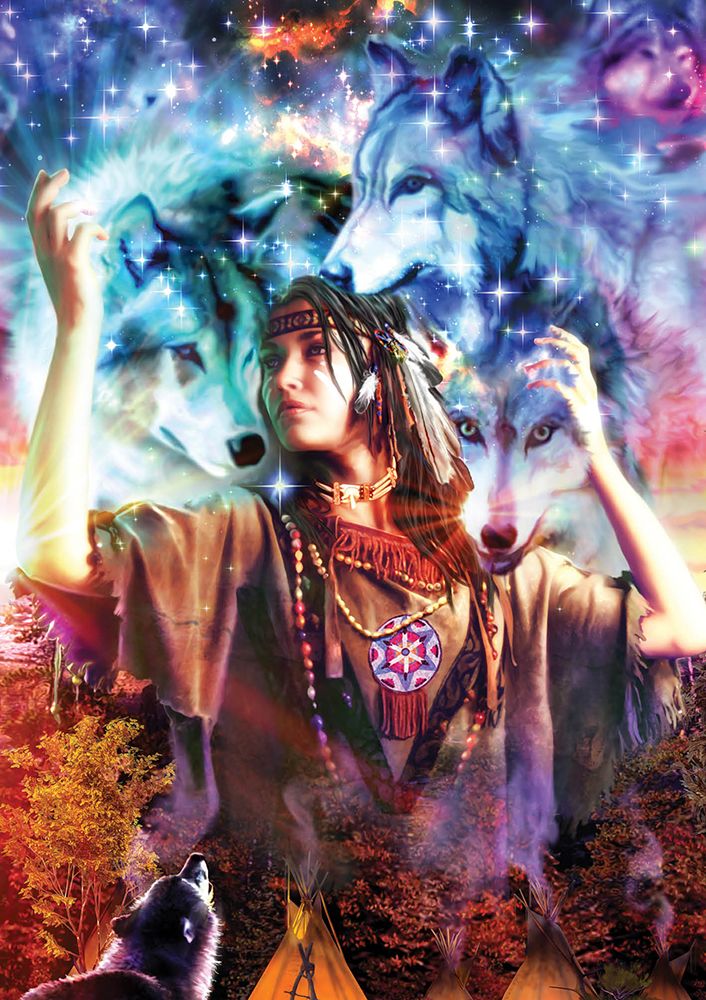 The grandfather’s wise words remind everyone that change is possible, and that it can be achieved by focusing one’s thoughts in the right direction. Remember to be patient with yourself as you embark on your personal journey of growth and stay positive.
The grandfather’s wise words remind everyone that change is possible, and that it can be achieved by focusing one’s thoughts in the right direction. Remember to be patient with yourself as you embark on your personal journey of growth and stay positive.
The Story of Two Wolves
By UB’s Alyssa Yeo, LPC, CYT
While in yoga class the other day, my teacher shared this Native American parable:
An old Cherokee is teaching his grandson about life. “A fight is going on inside me,” he said to the boy. “It is a terrible fight and it is between two wolves. One is evil – he is anger, envy, sorrow, regret, greed, arrogance, self-pity, guilt, resentment, inferiority, lies, false pride, superiority, and ego.”
He continued, “The other is good – he is joy, peace, love, hope, serenity, humility, kindness, benevolence, empathy, generosity, truth, compassion, and faith. The same fight is going on inside you – and inside every other person, too.
”
The grandson thought about it for a minute and then asked his grandfather, “Which wolf will win?”
The old Cherokee simply replied, “The one you feed.”
Whether or not it’s your first time hearing this story, it serves as an important reminder of the power we have over our experiences and emotions.
It’s easy to feel like a victim in challenging situations and circumstances in our lives. We want to understand our negative thoughts, feelings and experiences, so we place blame on other people, objects, or events. We look outward to try to make sense of what’s going on inside of us. We do this all the time. Why? It’s our way of coping, and feeling more in control of uncontrollable situations.
The problem with this approach, however, is that it takes away our personal responsibility and freedom of choice. In our attempt to feel more in control (by faulting others for our experience) we actually strip ourselves of our own power.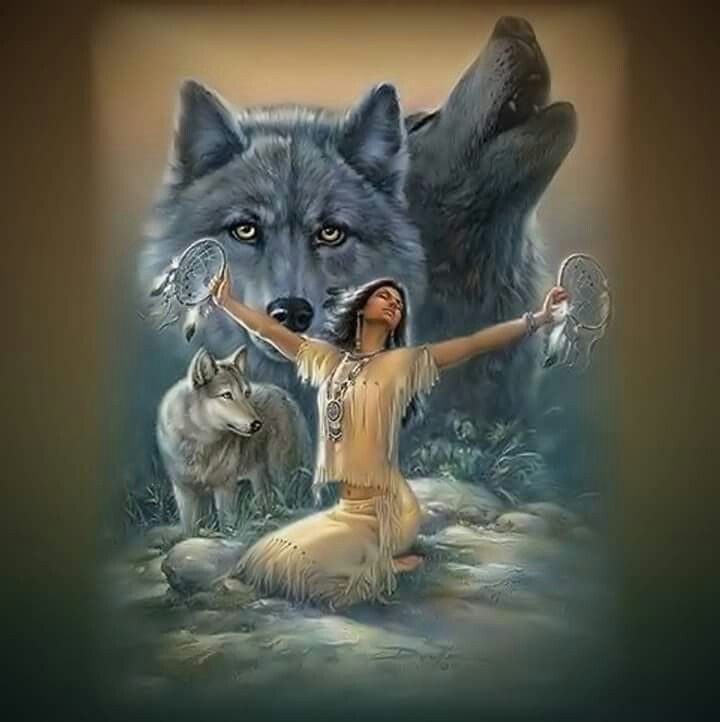 That power is lost the moment we become dependent on other people or things to make us feel a certain way. Whether that feeling is positive or negative, we are no longer taking sole responsibility for our own emotions or experiences when we believe that they are a result of anything other than our own choice.
That power is lost the moment we become dependent on other people or things to make us feel a certain way. Whether that feeling is positive or negative, we are no longer taking sole responsibility for our own emotions or experiences when we believe that they are a result of anything other than our own choice.
By exercising your freedom of choice, you can make a life-changing decision of which wolf you want to feed. Do you feed the wolf who is hungry for anger, envy, sorrow, regret, greed, arrogance, self-pity, guilt, resentment, inferiority, lies, false pride, superiority, and ego? This evil wolf is also your inner critic. The one who tells you that you are a failure, the one who says that no one will love you or understand you for who you are. This wolf is a representation of your depression, your anxiety, and your low self-esteem. Do you want to feed this wolf? Are you feeding him already?
By cutting off his food supply, you will be making a choice to use your energy and resources on thoughts, feeling, and emotions that serve you in healthy ways.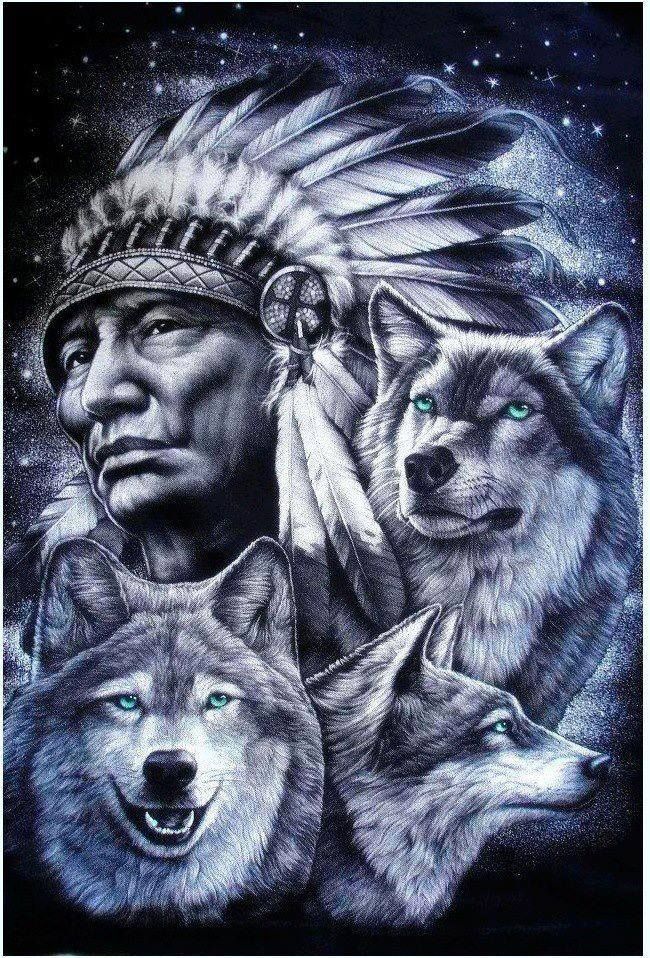 While you can recognize the negative emotions occurring within you, you don’t have to attach to them or continue to give them attention. You shifting your focus is a sign to that wolf that you are not interested in giving him food. And while it may take some time for that wolf to lose his strength and power, eventually he will surrender – as will your unhelpful thoughts and emotions. Once you stop fixating on them, they will eventually drift away.
While you can recognize the negative emotions occurring within you, you don’t have to attach to them or continue to give them attention. You shifting your focus is a sign to that wolf that you are not interested in giving him food. And while it may take some time for that wolf to lose his strength and power, eventually he will surrender – as will your unhelpful thoughts and emotions. Once you stop fixating on them, they will eventually drift away.
So what about the other wolf? Well it certainly isn’t going to feed itself.
Just as you would with the bad wolf, it is imperative that you exercise your freedom of choice and decide to nourish the wolf of joy, peace, love, hope, serenity, humility, kindness, benevolence, empathy, generosity, truth, compassion, and faith. We often look to external objects for our fulfillment and happiness. We develop expectations that these things (a new job, a relationship, a lavish vacation, a brand new pair of shoes, a glass of wine, etc.) will finally make us feel the way we want to feel.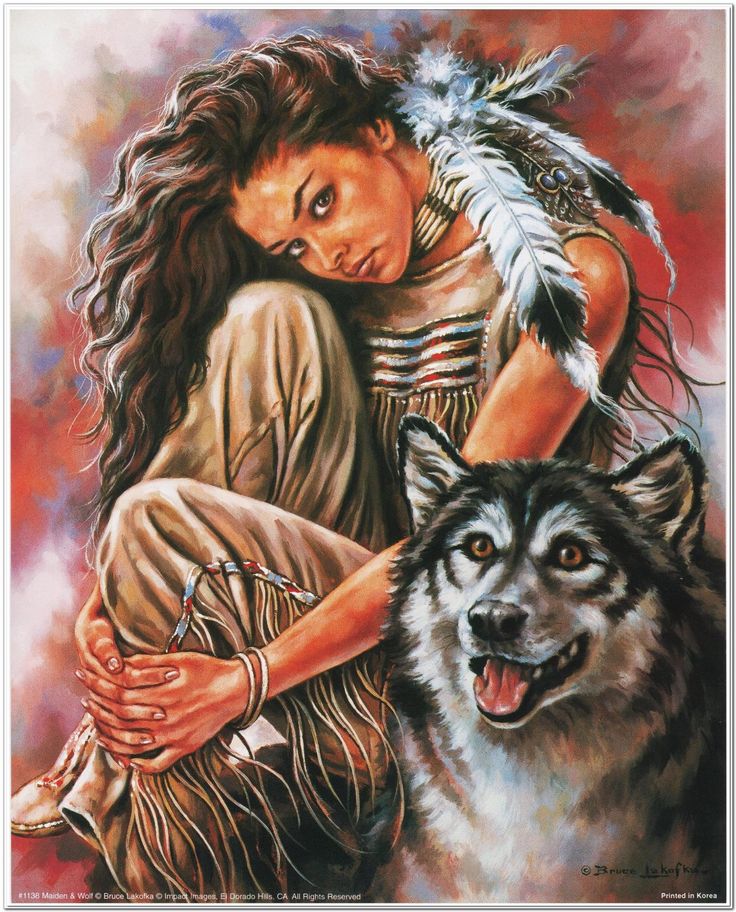 And while this may bring momentary gratification, it isn’t realistic to maintain this long-term.
And while this may bring momentary gratification, it isn’t realistic to maintain this long-term.
Happiness isn’t a conditional state. It’s a state of being. True lasting happiness comes from making an active choice to be happy, rather than depending on external things to make you happy. The more that we seek out happiness, and look for it as if it is a treasure we will find, the less we are feeding the wolf that is inside of us. You already have everything you need to be happy because you are whole as you are, right now. The feeling and experience of happiness comes from feeding the wolf from within. As he becomes bigger and stronger, he will be better equipped to handle life’s challenges. If you choose to feed only him, he will always win.
Magic around the world. Beneficial Animal Tales
Willy Winky's Magical World Tour is 50 very different and unusual animal tales under one cover, collected by Angela McAllister.
The geography of the stories is very interesting: Africa, Asia, North and South America, Europe, Australia and Oceania.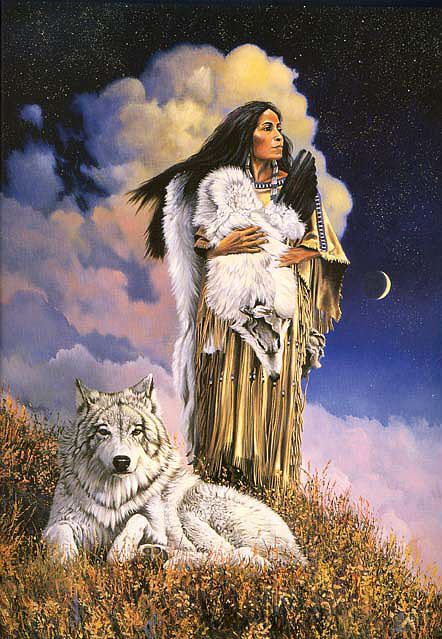
Why should you read this book?
- In any fairy tale , regardless of its origin, has a moral.
For example, one of the tales in the book is the Indian tale "The Elephant and the Blind Men". She is very fond of telling at various events and trainings. How 6 blind brothers felt the elephant and each said what the animal looked like. One studied the leg, the other the trunk, the third the ear, and so on. And each described the animal based on the small fragment that he felt. Each one was wrong. It was only when they came together and put their descriptions together that they got the complete picture right.
Another instructive Indian tale that is often retold is The Peasant and the Mule. The old mule fell into a dry well. It was difficult to get it, and the peasant decided to simply fill up the well with a mule. The animal quickly figured out what was the matter. And he began to throw off the earth, which the peasant threw into the well, under his hooves and tamp it down.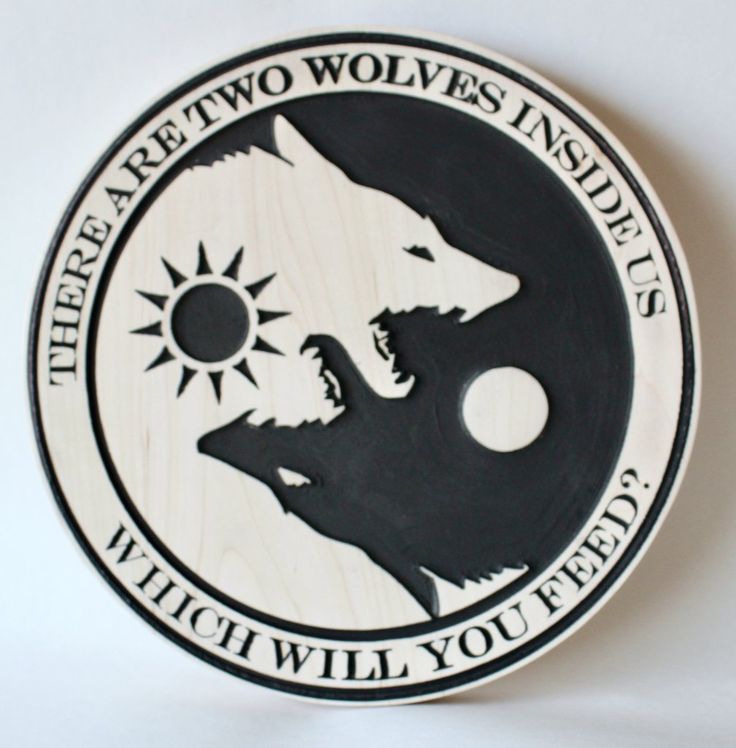 So after a while the level of the ground rose, and the mule calmly got out of the hole. What is the moral of the tale? Never despair! Look for ways to use the current situation to your advantage.
So after a while the level of the ground rose, and the mule calmly got out of the hole. What is the moral of the tale? Never despair! Look for ways to use the current situation to your advantage.
- These fairy tales can unobtrusively study geography, learn about different continents, continents, countries. And more states, nationalities and even tribes.
Who are the Zulus? Where is Ghana located? Where is the Lakota tribe from? Who are the Inuit?
- Absolutely new animal world. Of course, in fairy tales there are wolves, bears, foxes, hippos, lions, bison, pandas, monkeys and other well-known animals. But there are also unknown ones.
For example, the Argentinean fairy tale "Two viscaches". Vizcacha is a small animal from the chinchilla family, somewhat reminiscent of a rabbit. Or in the Australian fairy tale "Where did the kangaroo bag come from" there is a wombat.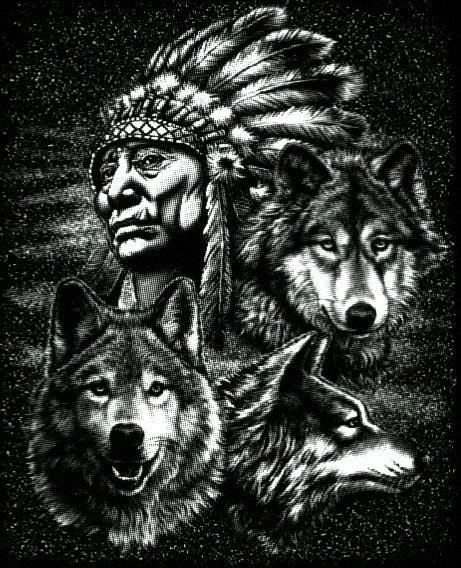 This is a small herbivore that lives in Australia and is somewhat reminiscent of a small bear or a very large hamster. In the Brazilian fairy tale "Party in Heaven" you can meet a bird of prey named Sarych. Her middle name is the common buzzard. But to be honest, I did not know either of the two options. In another Australian tale, you can learn about birds from the chicken order - big-footed. Their second name is weed chickens. The tale is called “Emu and Bigfoot”. Admit it, did you know about such animals and birds?
This is a small herbivore that lives in Australia and is somewhat reminiscent of a small bear or a very large hamster. In the Brazilian fairy tale "Party in Heaven" you can meet a bird of prey named Sarych. Her middle name is the common buzzard. But to be honest, I did not know either of the two options. In another Australian tale, you can learn about birds from the chicken order - big-footed. Their second name is weed chickens. The tale is called “Emu and Bigfoot”. Admit it, did you know about such animals and birds?
- Another interesting game when reading the book "Magic Around the World" is the search for similarities between the fairy tales presented in the book and well-known works. I'm sure the kids will love it.
For example, the English fairy tale "The Three Little Pigs" is very similar to the fairy tale "The Three Little Pigs". And the Finnish fairy tale “Mighty Mikko” is a variant of “Puss in Boots”, only with a fox “in the title role”.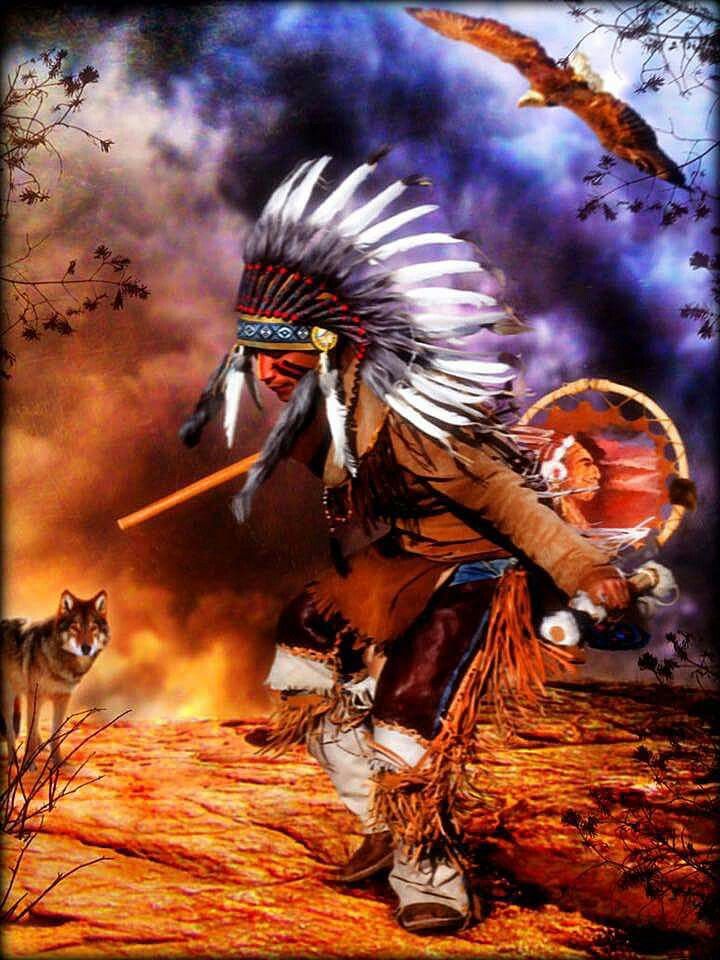 The Iroquois fairy tale "Bobtail" is familiar even to kids as "Sister Chanterelle and the Gray Wolf." Only in the Indian version, it was not the wolf that suffered from the cunning fox, but the bear.
The Iroquois fairy tale "Bobtail" is familiar even to kids as "Sister Chanterelle and the Gray Wolf." Only in the Indian version, it was not the wolf that suffered from the cunning fox, but the bear.
- But most fairy tales will still be new and interesting.
Because it is unlikely that you have read the Nigerian fairy tale "Ants and Treasures", Zalu's "Why Cheetahs Cry" or Karuk's "Sly Wolf" before.
There were 2 books in my library that perfectly complemented the "Magic Round the World".
I already wrote about the collection of poems and fairy tales by Andrey Usachev "The Crocodile Who Didn't Cry" published by the Vremya publishing house. You can read my review here: What do you know about Australia? Book for children and parents
There are 5 fairy tales from Australia and Oceania in the "Magic Round the World". You can continue to study the legends and stories from this part of the world just by reading the book "The Crocodile Who Didn't Cry".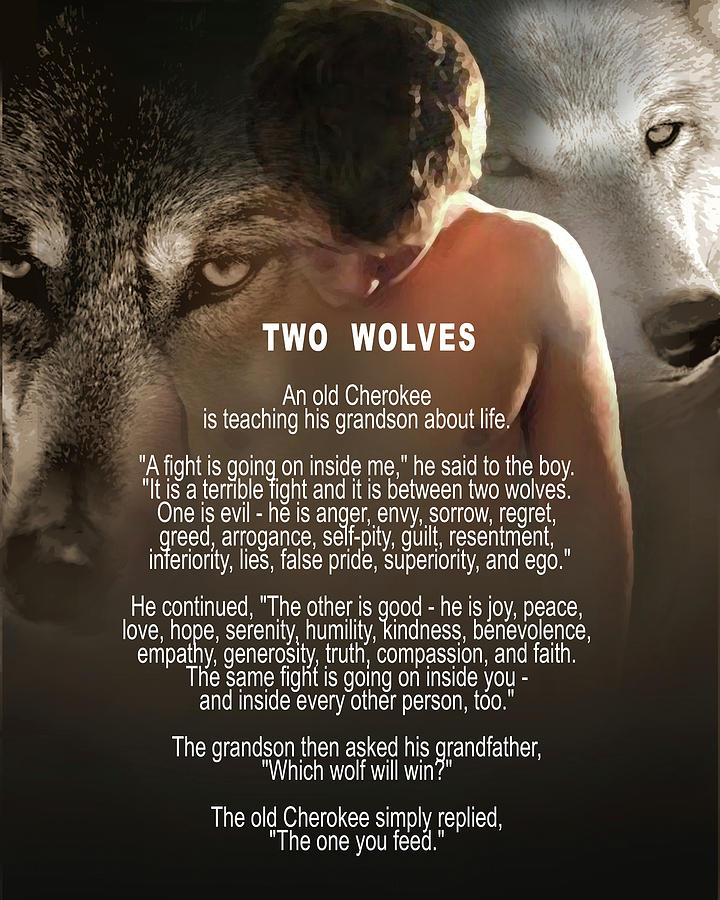
Again, introduce your child to new animals and birds. For example, wallabies, bandicoots, they are also called marsupial badgers, flightless bird kakapo and marsupial couscous. Believe me, after reading "The Crocodile Who Didn't Cry", I learned a lot of new things!
And the second book, which became an excellent illustration for the "Magic Round the World", is the book for kids "God created me" published by "Nicaea". Don't let the religiosity of the name fool you. This is a wonderful children's book with bright and colorful illustrations. The essence of which is to show differences.
She tells about the dissimilarity of the inhabitants of the globe. Rather, he does not tell, but shows. One spread shows animals with different noses, then with different tails, incredibly diverse colors, ears, legs, etc.
How do I use this book? We read some fairy tale in “Magic Around the World”, and in the process or after, I ask my daughter to find the heroes of the fairy tale in “God Created Me”.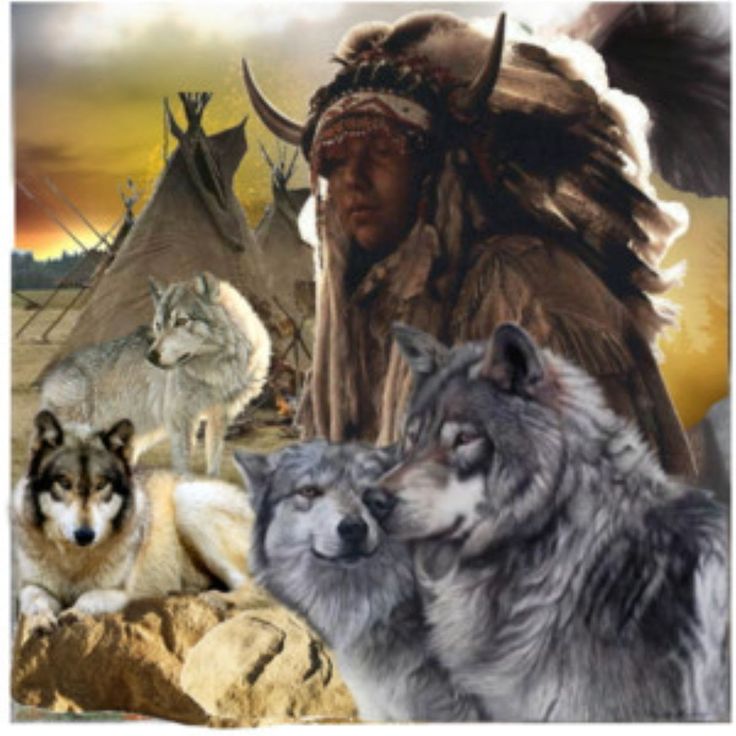
Heroes of the Tibetan fairy tale “Land of Mice” are mice. Daughter is looking for a mouse in the second book. The characters in the Japanese "Why Jellyfish Have No Bones" are a jellyfish and a monkey. We are looking for them. Reading the Peruvian "Frog from a mountain stream", respectively, we look at the frog.
This kind of distraction allows the child to shift a bit and get distracted. It is also useful for the child to see different versions of images of the same animals and birds.
Often, some psychologists are against the fact that parents work with children on cards. This happens because the child begins to associate a particular card with an animal or object. If you show different versions of images: photographs, different illustrations, drawings, figures, then such problems do not arise.
This is where I see the point of using different books with very diverse options for drawings and illustrations. The book "God Created Me" can be watched even with young children.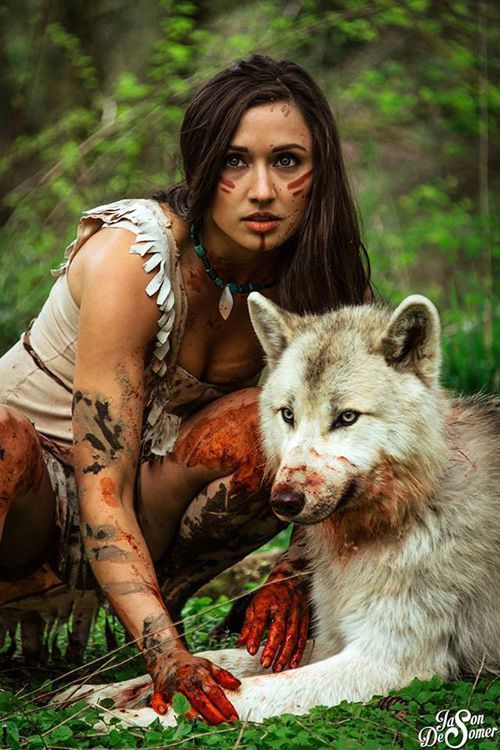 It is small, printed on thick cardboard, it has safe rounded corners, bright illustrations, 10 spreads, on the last of which the baby is in for a surprise - a small mirror!
It is small, printed on thick cardboard, it has safe rounded corners, bright illustrations, 10 spreads, on the last of which the baby is in for a surprise - a small mirror!
Such different books, useful and perfectly complementing each other!
Was this information helpful?
YesNo
Read the story Old Mukason's Bear (Indian)
Page 2 of 2
Old Mukason, constantly waiting for her son's return, was the first to notice Danako with the toboggan.
Seeing her cut hair, she understood everything. She felt a sharp pain in her heart, as if an eagle's claws had scratched it.
She rushed towards me. Desperation gave strength to her old legs.
Ran up to the toboggan and fell to the ground next to her son. Her gray hair covered his head, and hot motherly tears poured onto the face of the murdered.
But then she felt the light touch of Danako's palm.
- Get up, mother Mukason, do not kill yourself with grief, but rather sing a song about the great campaigns of your son and about his road to the Land of Eternal Peace.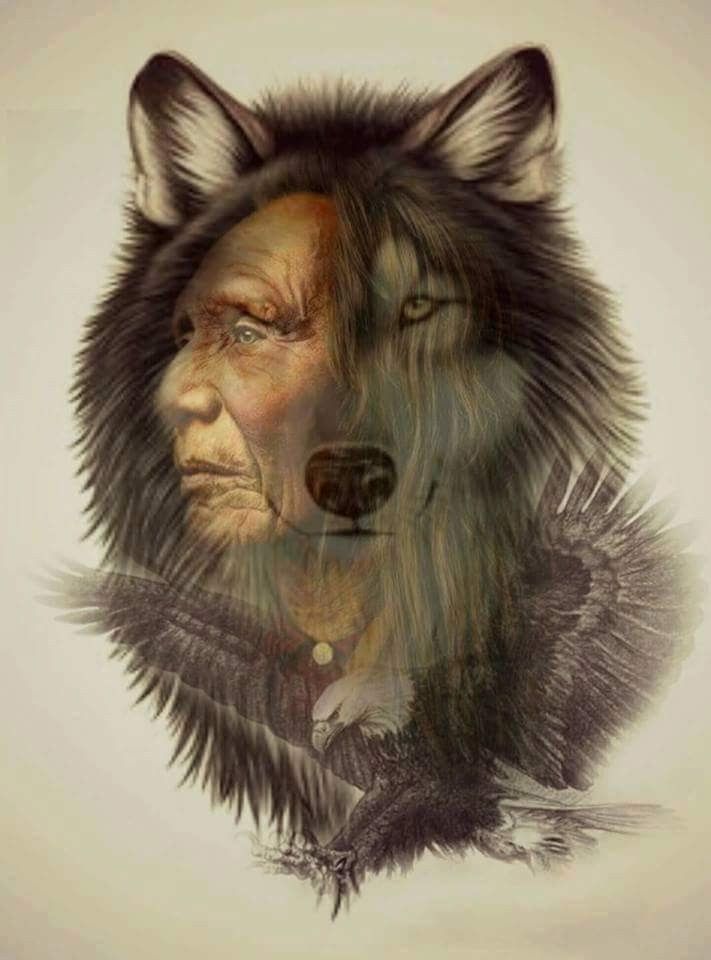
The old woman stood up, from her chest, choked with pain, the words of the Song of Death poured out:
Nothing in the world is durable,
except the earth and high mountains ...
As soon as the sounds of a sad chant were heard, people began to run out of the tents, everyone who was there, they hurried to the outskirts of the village. Children, women, men, like a dark cloud, approached the sad team. Fear was visible on their faces: they realized that the formidable prediction had begun to come true.
The most glorious of them died, left them. What will happen to them now?
Silent people in sadness and anxiety caught up with old Mukason. Hundreds of lips picked up the words of the Song of the Dead, all this merged into one sad tune, and he floated over the tops of mighty firs, rocks - to the distant land of Gitch Manitou.
The trees stopped making noise, the birds stopped singing, and in the midst of the forest silence this sad tune, crying and sobbing could be heard far away.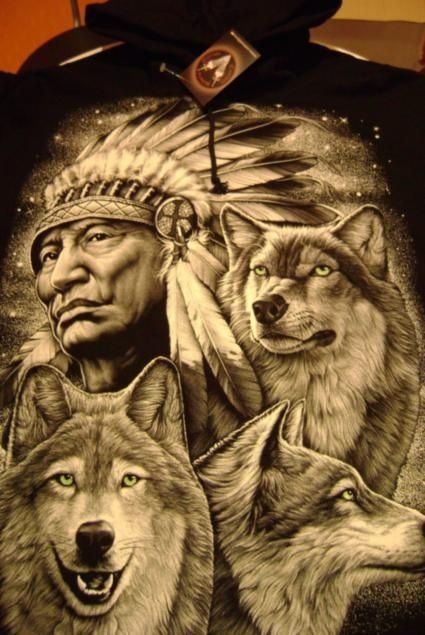
Mukason walked in front, supported by two girls. Her eyes filled with tears did not see the road. Danako followed her in silence, dragging the toboggan with the body of her beloved.
The procession stopped in front of the tipi of the deceased. Four men carried the body into the tent to prepare and put it away on their last journey.
Weeping Mukason and silent Danako remained in front of the tent. Danako raised her hands and said, addressing the men:
- Warriors, collect branches and trees for a fire on a rock, I want Tuli to fly into the sky, like a big puff of smoke, like a big pukvana.
Soon a pile of white birch bark and dry branches was ready.
Meanwhile, Tuli, dressed in a chief's robe embroidered with tribal patterns, wearing a large headdress of eagle feathers, with a face painted in the colors of peace - blue and white transverse stripes running from temple to temple across the bridge of the nose - sat leaning against a pillar , in your tent. He had a bow and a quiver with light arrows behind him, and a tomahawk and a knife behind his belt.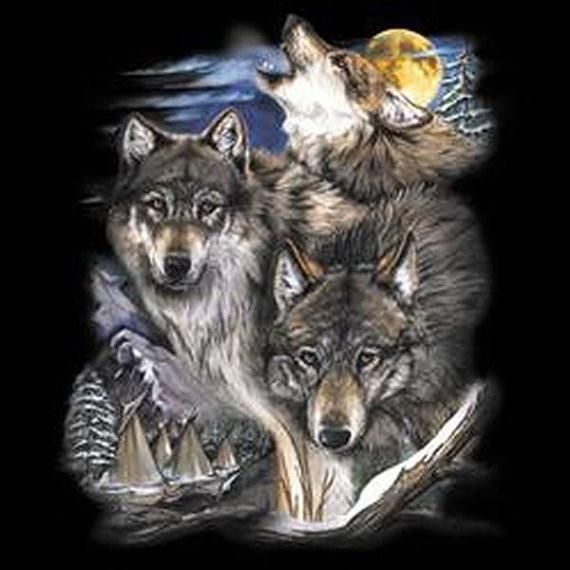 On his chest, next to a necklace made of bear fangs, hung a small bag beautifully trimmed with hedgehog needles. Various medicinal herbs and tobacco were placed in it, which should be useful in the Land of the Dead.
On his chest, next to a necklace made of bear fangs, hung a small bag beautifully trimmed with hedgehog needles. Various medicinal herbs and tobacco were placed in it, which should be useful in the Land of the Dead.
The oldest of the leaders led the horse of the deceased warrior to the top of the stacked heap. He was tied to a cross beam, and the sorcerer took an arrow from Tuli's quiver and shot it right into the mustang's heart.
The arrow pierced through the steed. He remained standing, supported by straps. It was decorated with feathers, the sides were painted with white and red circles, bloody handprints.
Mustang was ready to go with his dear owner to the Land of the Dead.
Four warriors carried the body of the deceased in a sitting position, the rest sang a farewell song:
You left you, brave warrior,
went to your wise fathers,
to fight with scarlet spirits.
You had everything on earth, brave warrior:
expanses of the forest, abundance of animals,
love of people and dear wife.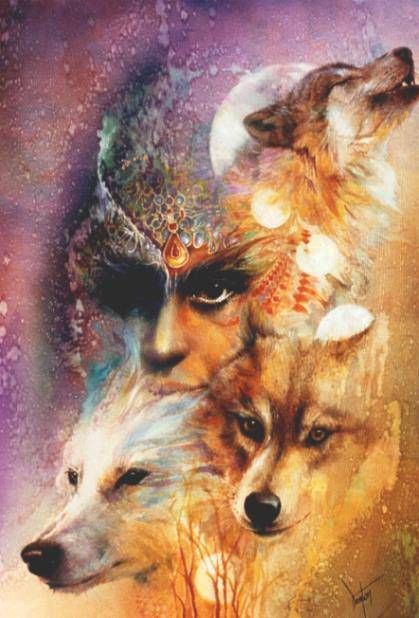
You left everything and you will not return to us.
Girls tear their hair from their heads.
Can you hear them crying? Raise your eyelids!
Tuli, our leader is invincible,
the enemy was cunning and cunning.
Your blood will be avenged!
An avenger of our kind will appear!
The chant ceased as the procession approached the place where the fire had been prepared.
The bride was already waiting here, surrounding Mukason and Danako, dressed in a white dress adorned with ermine tails. Danako's stony motionless face did not express any feelings - everything died in her.
The body was carried to the top and mounted on a horse, facing northwest, where the Land of the Dead is located.
Danako, having said goodbye to old Mukason with an ancient sign of peace, went to a pile of deadwood. She stopped for a moment, looked at the assembled soldiers, at the neighboring thicket, at the tops of the tents in the village, then with confident steps she began to climb the birch woodpile.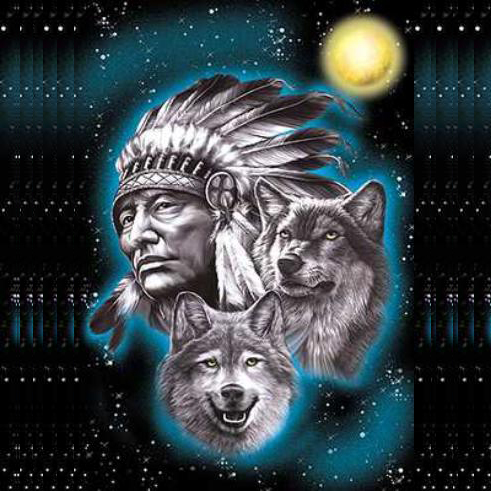
From above, she once again looked at the sun, at the clear sky, then knelt down, pressed her face to the legs of her beloved and froze motionless in this pose.
The mournful moan of the women soared into the sky when the birch bark was set on fire and a bright flame flared up, engulfing the logs stronger and hotter. With hissing and crackling, the insatiable, voracious fire rose higher and higher. Among the clouds of smoke and flames, sometimes a warrior sitting on a horse and his kneeling wife flickered.
Clanmates looked at this with solemn excitement and anxiety.
Now it was necessary to drive away the evil spirits, and the warriors began to dance around a huge blazing fire. And the crowd clapped their hands, waved their hands, throwing up spears.
The fire was burning. Suddenly, a sheaf of sparks soared rapidly into the sky - the bodies disappeared in the fiery incandescent depths.
The songs subsided... The spirits flew up.
The sun was already setting when the girls began to collect the ashes of the burned in clay pots.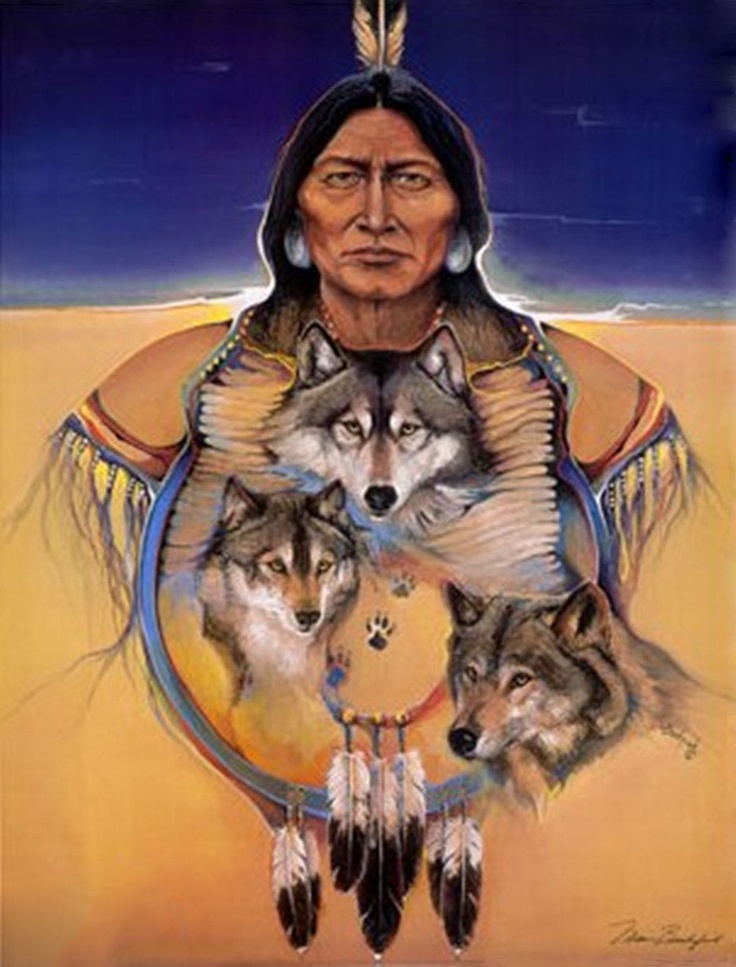 They were handed over to old Mukason.
They were handed over to old Mukason.
And now, sometimes sitting by the fire at night and singing a sad song, the old woman remembered the last days.
What did she have left in her old age? Two pots of ashes from my son and daughter-in-law.
She was left alone, but despite the fact that there was no man in her tent who would go hunting and bring prey, the family remembered her. The best cuts of meat were roasted on her fire.
However, she did not think about herself, her thoughts constantly circled around her son. And now, on this dark night, peering into the fire, she noticed that some kind of human silhouette appeared in the flame.
Rubbed her eyes in amazement. She shook her head as if to ward off evil spirits.
Looked into the fire again. The flames clearly depicted the likeness of two people.
No, her eyesight did not deceive her. She looked closely at the fiery figures. Naked to the waist, in leather pants, in a headdress of eagle feathers, with his hair tied up at the top in a knot, he, her son, looked the same as when he went on his last hunt.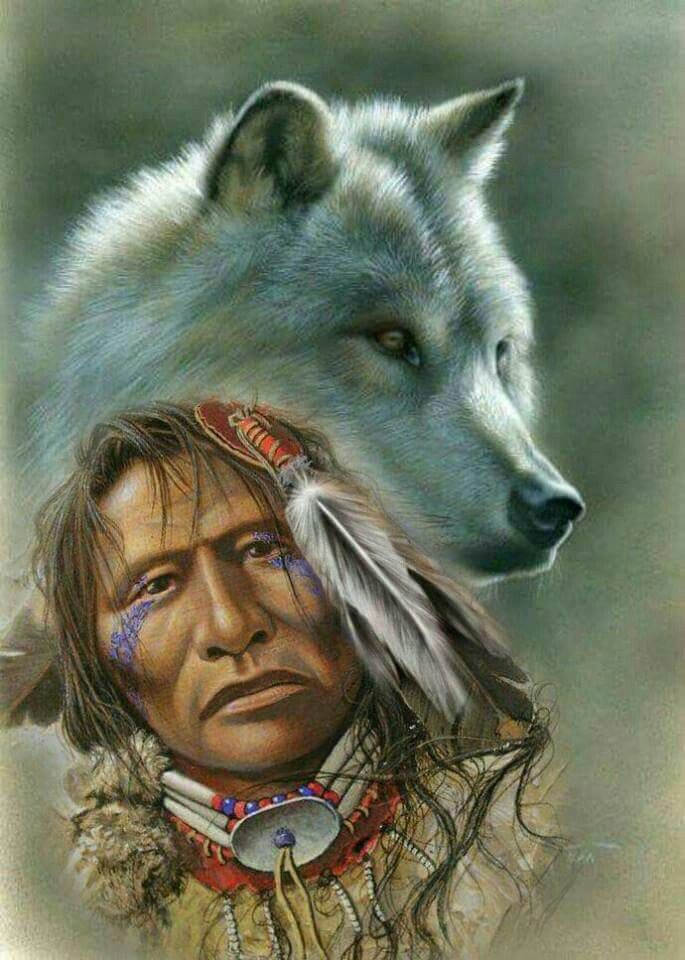 His face was a little pale, but the same: sharp features, deep-set eyes, a thin aquiline nose and closed lips, expressing determination and strong will.
His face was a little pale, but the same: sharp features, deep-set eyes, a thin aquiline nose and closed lips, expressing determination and strong will.
And next to him stood Danako, the same as before, cheerful and happy because she is with her beloved.
The old woman extended her hand towards the fire:
— Son, my beloved son, my old eyes see you again. My son, are you back to your old mother? Answer me, my love, my heart is torn from longing for you.
- Don't go near the fire, mom, don't cry, don't hurt us. I will live, mother, to avenge the offense of all my brothers. This revenge tells me to stay on earth. I will change my appearance, but my soul will remain the same. Wait for me, mother Mukason.
After these words, the figures of Tuli and Danako melted into wisps of smoke.
The old woman jumped up, ran to the fire so close that the flames licked her clothes. She asked, stretching out her hands:
- O Great Spirit, what are you saying in Tuli's words! Say where is he? Will he ever come back to me? Let him show him where little Osimo is, for whom the whole family is sad.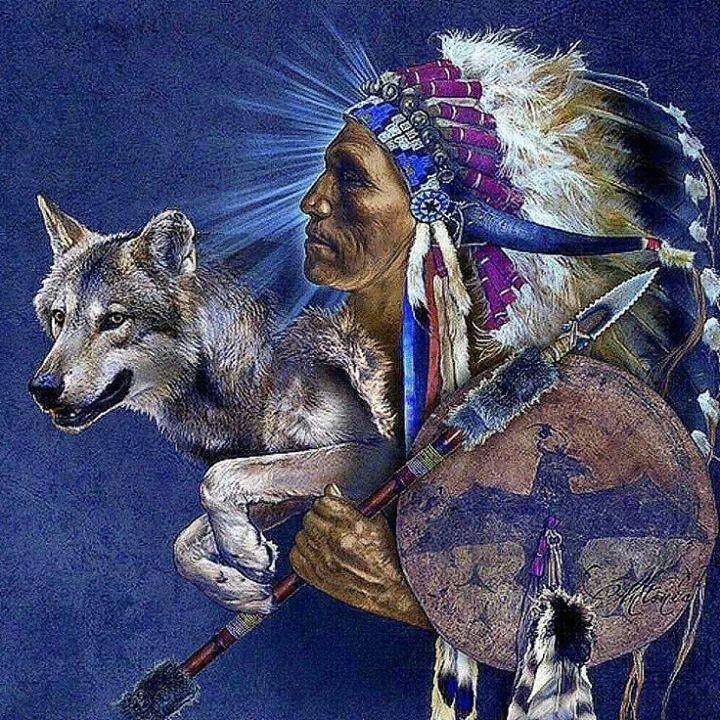 The best warriors searched for him in the thicket, but did not find the body. Show me where he is.
The best warriors searched for him in the thicket, but did not find the body. Show me where he is.
But there was silence all around.
- You're gone already, son. You left, but say that you will return, I will wait for you until the last day of my life.
Many days - Little Suns - have passed since then, when old Mukason saw her son in the fire flame.
And then one day, returning from hunting, the soldiers caught a bear cub. Mukason decided his fate.
"Give me a little grizzly," she said, "I'll train him, and he'll bring me meat, and you won't be a burden." Let him at least replace my son, who was your friend.
At first the warriors did not agree. They said that taming the little grizzly was too difficult. However, they left her a baby.
She cared for him, and he grew into a mighty giant. Huge paws with powerful claws caused fear in any enemy. Soon the bear of the old Mukason became famous among the surrounding families. On his neck was an identification collar made of owl feathers and porcupine quills, he wandered through the wilds of the forest alone or with his little friends, the children of the family.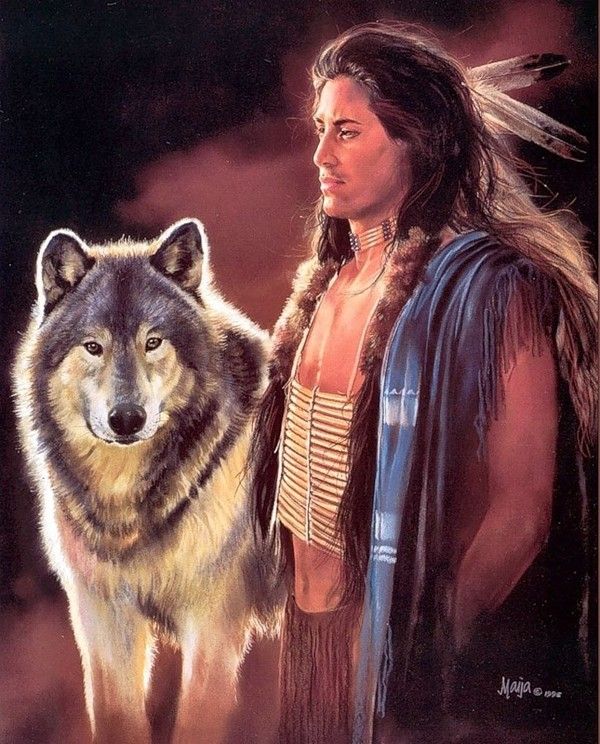
Grizzly loved children, just as Tooley used to love them. The children knew well that the bear would never offend them, and the mothers understood that the fun of children under his supervision was safe even in more often.
Just as before, when Tuli was alive, there was no shortage of meat in the village, and people forgot about the days of famine. They lived better and calmer. In the evenings, by the light of fires, they again danced hunting dances, and the symbolic image of a bear was on almost every tipi of a warrior and on shields.
But the bear felt best of all in the old woman's tent, when in the evenings by the fire she sang her sad songs, remembering her son. Hiding not far from the fire, in the darkness, he lay motionless and listened, and his eyes sparkled with an amazing brilliance ...
Sometimes he disappeared into the thicket for several days. He returned emaciated, with shabby hair, with eyes covered with a misty veil. Then he peered even more attentively at the face of the old woman and lay by the fire even longer.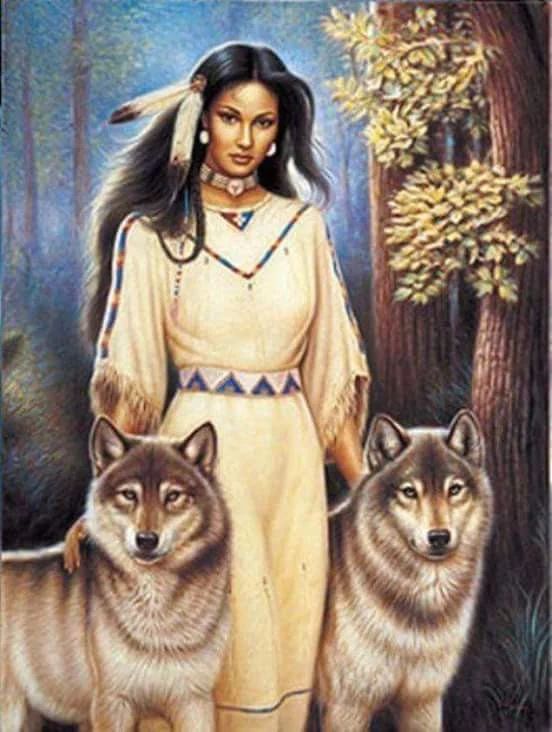 And Mukason became even sadder. She sat next to him all day, scratching his huge head and humming the songs that he loved to listen to so much.
And Mukason became even sadder. She sat next to him all day, scratching his huge head and humming the songs that he loved to listen to so much.
But one day the bear did not return to the village. In vain did the warriors look for their four-legged friend. In vain they ransacked all the forests and mountains.
Rod was again in great sorrow, and old Mukason shed tears around the fire.
Warriors, as a sign of sadness, began the bear dance in the evenings. Imitating the heavy and rolled gait of Gitch Mokva - a bear - they circled around the fire, then fell on their hands, then again, rising to their feet, spun and stomped in place. Then a sorcerer dressed in the skin of a bear entered the circle of dancers. The warriors paused and, in time with the beats of the drum, beat the rhythm with their feet. That part of the dance began, which described the life of a bear cub in an Indian village, his hunting trips and mysterious disappearance. The sorcerer showed the battle with the wolves, the heroic death of the bear.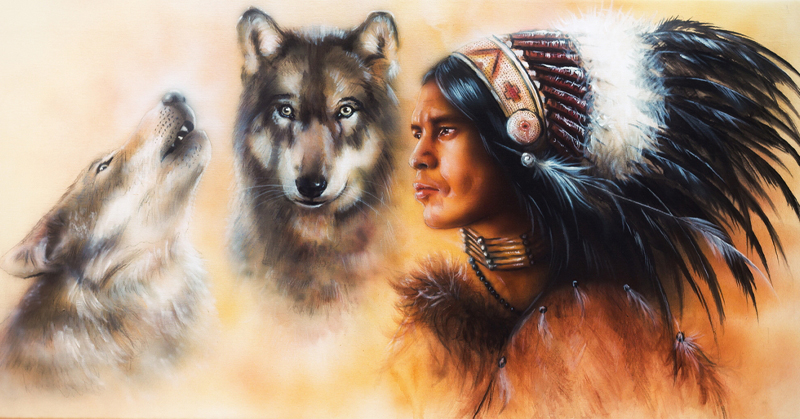
Before the moon floated out into the middle of the sky, the dances ended, and everyone, in deep thought, went to his tent.
One evening, the old woman could not fall asleep for a very long time, and when she finally overcame sleep and she closed her eyes, she heard a slight scratching on the skin of the tent.
Mukason got up from the bedding - a bear's head stuck into the tent. His appearance was somehow strange. The wool on him hung in tatters, his eyes were cloudy, the former brilliance of his eyes had disappeared somewhere. There was a large blood stain on the left side.
- Mom, it's me, Toolie Bear. So the prophecy that I told you from the fire came true. Many Big Suns I lived under your roof, supplying meat to the hearth and seeing off the hunters for prey. It's time for you to know everything to the end. Let's follow me.
Unnoticed by anyone, they quietly slipped out of the village and, like two shadows, disappeared into the dense thickets. Tuli the bear put the old woman on his shoulders and, only to him, along familiar paths among tall trees and rocks, rushed south.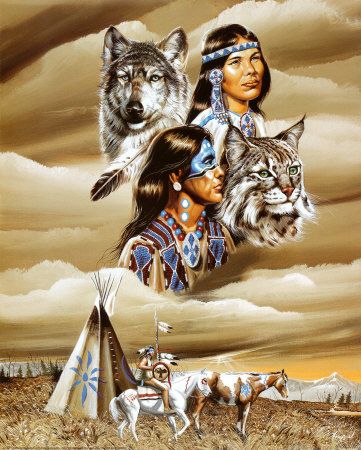
Several years ago he walked the same road as a man with little Osimo, now he was leading his mother along it, and only dim stars showed him the way in the darkness.
Before dawn the bear stopped. Mukason got off his shoulders and looked around. Directly in front of her stood a large pine tree with a wide hollow. And all around were dense thickets of glog and wild raspberries.
The bear approached the hollow.
- Little Osimo sleeps here forever. He was villainously killed by the same ones that killed me: the insatiable white invaders. All this time, when I was in your village, mother, I was tracking them down and trying to drive them to the scene of the crime. And three nights ago, here, where they killed me and Osimo, I gave them a fight. The one who shot at me, as well as his friends, are no longer alive. There were five of them. This wound on my left side is the mark of the fifth ax, when I was already tired of the struggle. It's a pity for Osimo, he would have been a good warrior.